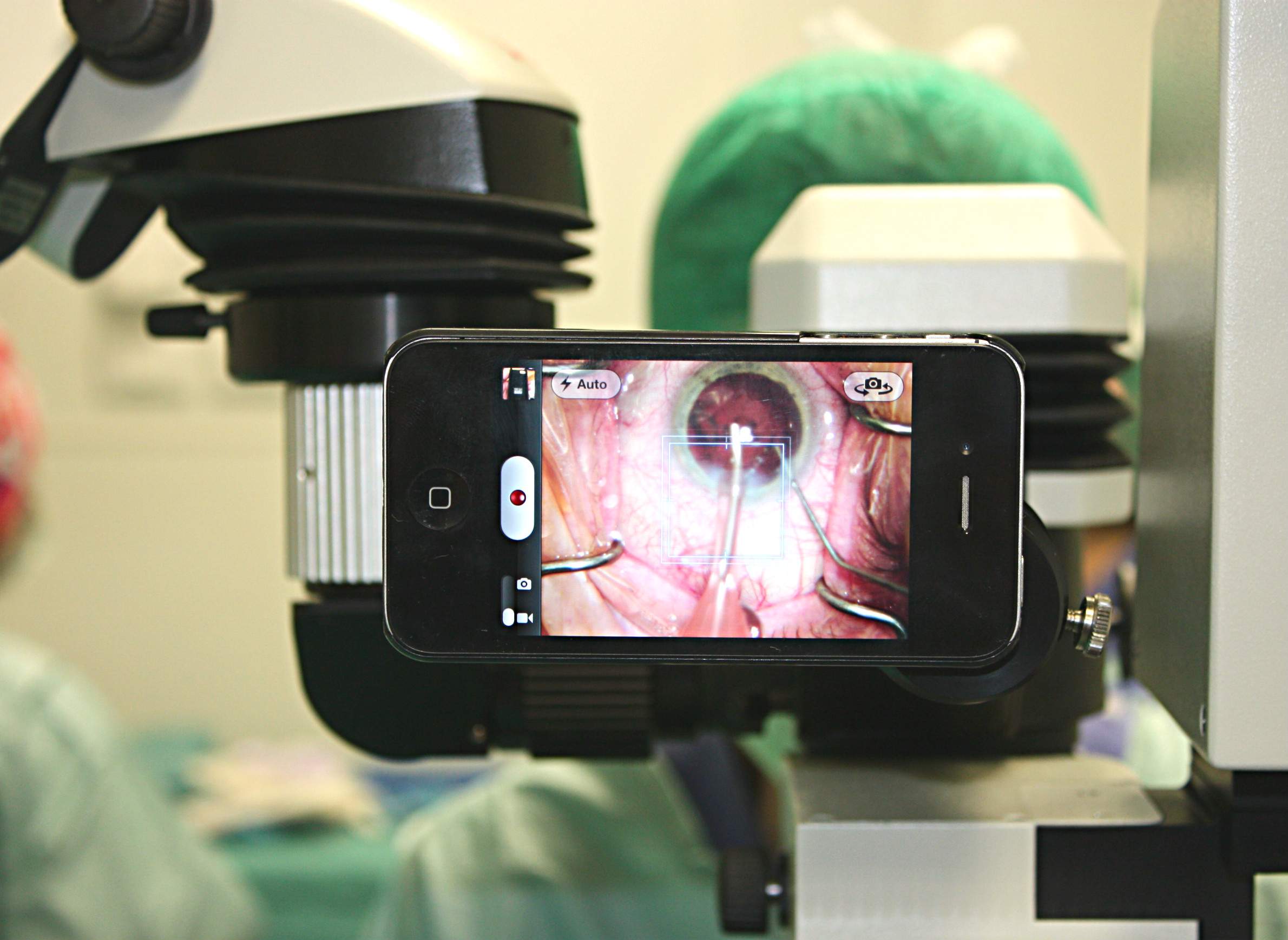
Wisconsin And Foxconn's Bid For Health Technology Business

Scientific and medical research at a flagship state university like the University of Wisconsin-Madison regularly involves ongoing relationships with private industry.
Various entities within the university and other UW System schools look to apply research findings in a way that creates or expands business opportunities, by incubating start-up companies or helping scientists patent technologies they develop. Professors license out their innovations to help the university get a return on its research investments, or even spin-off new companies of their own. Of course, private companies make their influence felt on academia, from funding endowed professorships and teaching equipment to providing additional know-how in the form of research collaborations. And alumni groups actively court donations from onetime students who've gone on to make money in the private sector.
As the Taiwan-based electronics manufacturer Foxconn considers spending billions of dollars to construct multiple facilities in Wisconsin, aided with around $3 billion in state-funded incentives, the state's scientific research community is already looking for opportunities to collaborate. Foxconn's proposed operations in Wisconsin would be focused on LCD screens, which are ubiquitous in smartphones, computer monitors and consumer televisions, but also an increasingly familiar presence in medicine. Medical and biotech boosters in the state are already touting the possibility of working with Foxconn to develop advanced display technologies for medical applications including radiology and endoscopy.
People outside of Wisconsin don't necessarily appreciate the strength of medical research institutions like the UW School of Medicine and Public Health or the Medical College of Wisconsin, said UW professor of radiology Scott Reeder in an August 25, 2017 interview on Wisconsin Public Television's Here & Now.
"There's really a critical mass of talent in this area," Reeder said, referring to developments in the biotech industry from both research universities and private companies. "I think it is something that actually is not well appreciated but is really a unique and very interesting strength of Wisconsin."
Wisconsin's biomedical technology strengths reflect, in part, a considerable long-term investment of federal and private research grants, even as the state has cut its share of funding for the UW System. The UW medical school accounts for the largest share of research funding and spending at UW-Madison, reporting $367 million in research support in the 2014-15 academic year. While the Foxconn deal represents a new kind of economic-development gamble for Wisconsin, its health care component may help underscore economic benefits of investing in public research universities.
Reeder said medical practitioners are looking for better ways to visualize data about their patients, and Foxconn could help them do so. He pointed to researchers' collaborations with GE Healthcare, which has multiple Wisconsin-based operations, as precedent.
These hopes center around high-resolution "8K" displays. Baseline consumer high-definition LCD screens on the market generally run 1080 or 1280 pixels across; on the other hand, an 8K screen has 7680 pixels lengthwise. The more pixels a screen has, generally the more detailed and vivid its images will be. When surgeons are exploring a patient's intestines with a camera inserted through the esophagus, or monitoring their conditions with a complex synthesis of data, clearer images could mean better communication and care.
It's not clear whether Foxconn's LCD manufacturing operations in Wisconsin would focus on making such advanced displays — the company has talked about making consumer-grade products, like Sharp brand TVs and monitors. But if Foxconn has a presence in the state, researchers might be able to develop relationships with the company to collaborate on that technology and experiment with new ways to use it.
Of course, it's not just Wisconsin's medical-research prowess driving these discussions. While Foxconn is best known for manufacturing iPhones, it's been expanding into the health technology world for several years. Foxconn chairman Terry Gou has a well-publicized interest in cancer research, and has also expressed interest in wellness products and "anti-aging technologies and therapies." In 2014, the company even announced that it wanted to build a chain of wellness resorts.
Foxconn's efforts have included making investments in the U.S., such as acquiring a stake in the California-based company Sotera Wireless and later helping that company out of bankruptcy. In 2015, Foxconn was in talks with a Silicon Valley company called Varian Medical Systems, which makes devices and software for radiation oncology. It has also worked with a company called Soundhawk that developed wearable "smart listening" devices that it insists are not hearing aids, but help users compensate for incremental hearing loss; Soundhawk announced in 2016 that it would suspend operations.
Just how much or profitably Foxconn has penetrated the healthcare sector is difficult to gauge. There's also little certainty about how Wisconsin's deal with the company will pan out or how long Foxconn will have a presence in the state, but its pursuit of healthcare technology business could give it another reason to remain.


